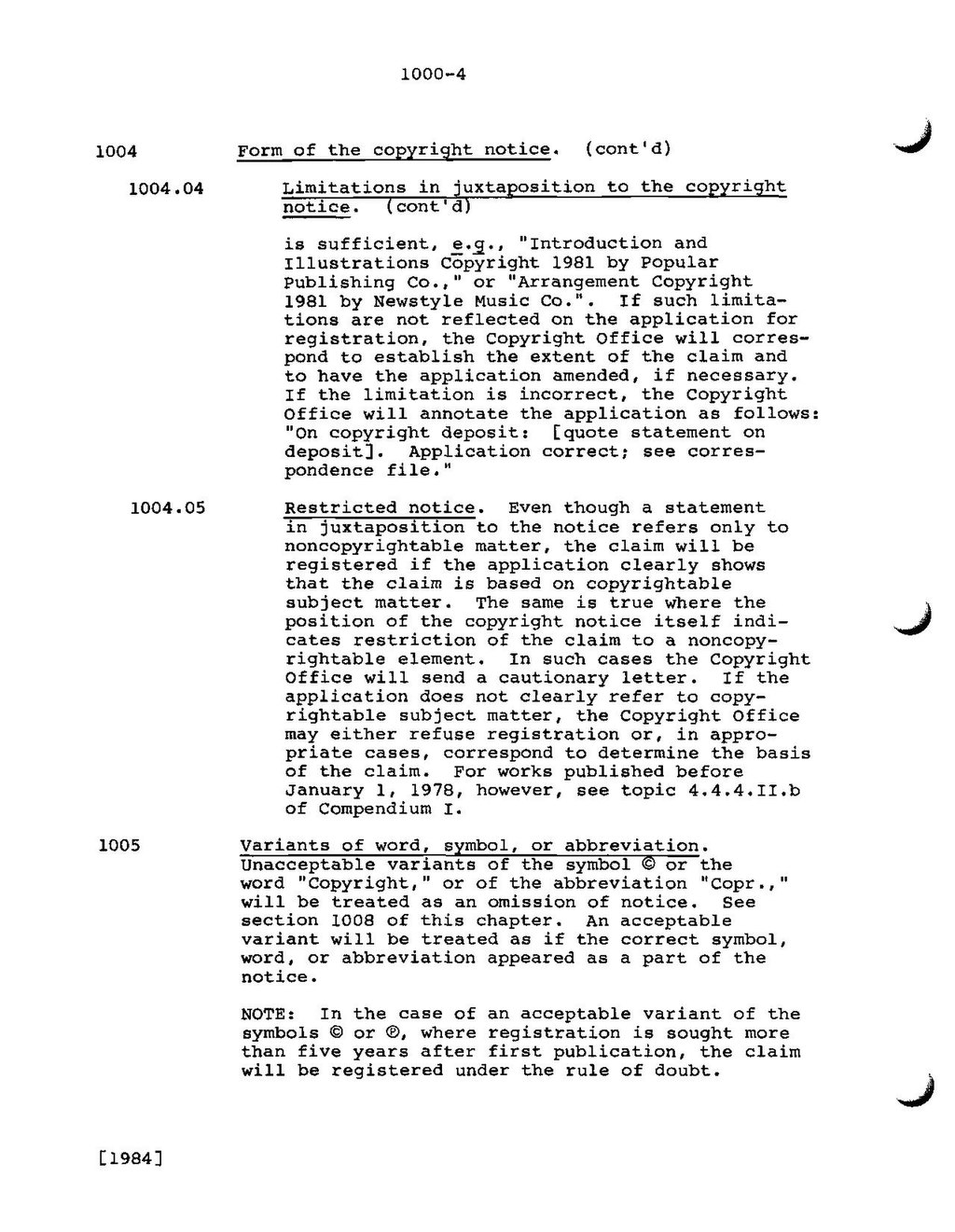1000-4
is sufficient, e.g., "Introduction and Illustrations Copyright 1981 by popular Publishing Co.," or "Arrangement Copyright 1981 by Newstyle Music Co.". If such limitations are not reflected on the application for registration, the Copyright Office will correspond to establish the extent of the claim and to have the application amended, if necessary. If the limitation is incorrect, the Copyright Office will annotate the application as follows: "On copyright deposit: [quote statement on deposit]. Application correct: see correspondence file."
Variants of word, symbol, or abbreviation. Unacceptable variants of the symbol © or the word "Copyright," or of the abbreviation "Copr.," will be treated as an omission of notice. See section 1008 of this chapter. An acceptable variant will be treated as if the correct symbol, word, or abbreviation appeared as a part of the notice.
NOTE: In the case of an acceptable variant of the symbols © or ℗, where registration is sought more than five years after first publication, the claim will be registered under the rule of doubt.